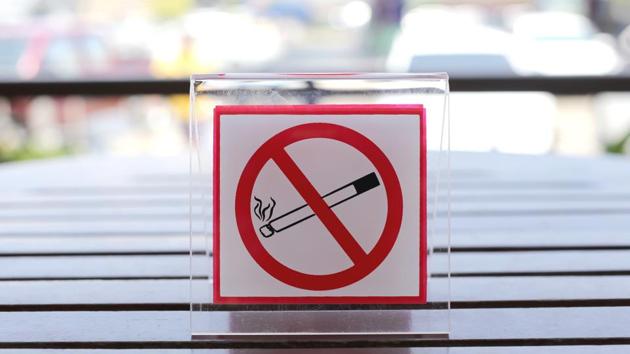Curbs on tobacco products will help the fight against Covid, boost the economy
By prioritising and strengthening tobacco control measures and implementing NCD prevention policies, India will improve health conditions and the economy
The Covid-19 pandemic has pushed us to adapt to a new normal, retrospect on underlying behaviours towards health and shun old harmful habits that are detrimental to one’s health and that of others. One such habit is smoking or using smokeless forms of tobacco.

A recent review of studies by public health experts convened by WHO in April 2020 found that smokers are more likely to develop severe disease with Covid-19, compared to non-smokers. There is evidence that impaired lung function due to smoking and susceptibility to non-communicable diseases (NCD) like cardiovascular disease, cancer, and diabetes due to continued use of tobacco products, are putting people at higher risk of developing severe Covid-related health complications.
In this pandemic, factors like social isolation for long periods, poor work-life balance, strained interpersonal relationships, lack of personal time, poor coping skills, pre-existing psychological conditions, financial distress, and job insecurities are major triggers for individuals to take up or increase the use of cigarettes, beedis and other tobacco products. It is crucial that the government focuses on tobacco control measures.
In India, an estimated 1.3 million deaths are accounted for as due to the use of tobacco. As per WHO data, the most common way tobacco kills is from cardiovascular diseases (CVDs) which amounted to 4,49, 844 deaths in India as of 2018. The high prevalence of non-communicable diseases due to tobacco use poses a huge challenge to Covid-19 management and amplifies the health burden.
In April 2020, the Indian Council of Medical Research (ICMR) urged the public to stop consuming tobacco products and spitting in public places during the pandemic. Subsequently, the government banned the sale of all forms of tobacco products under the National Directive for Covid-19 Management. The ministry of health and family welfare issued a warning against the use of any tobacco products in the current times. While these initiatives are important, there is also a need to view tobacco control from a long-term lens.
The Covid-19 pandemic has highlighted the need for a robust public health system driven by effective policies and increased investment in the sector to improve health care outcomes as well as support economic growth through improved health indicators. WHO estimates that tobacco use burdens the global economy with an estimated $ 1.4 trillion in health care costs and lost productivity each year. According to studies in India, in 2011, the estimate of direct cost for treating four major tobacco-related noncommunicable diseases was Rs 104,500 crores, of which 16% was related to direct costs, and 84% to indirect costs.
In this context, tobacco control has to become the centrepiece of public health debates across the world. This pandemic may have unwittingly led to a great opportunity to curb the use of tobacco and to positively shape the future of public health in India. By prioritising and strengthening tobacco control measures and implementing NCD prevention policies, India will improve health conditions and the economy.
As India plans its road to recovery in a post-pandemic world, stringent tobacco control measures through simple but effective policy changes as part of the Cigarettes and Other Tobacco Products Act (COTPA) Bill, increased focus on improving on-ground implementation especially checks on violations and stronger measures to reduce access and affordability to tobacco products through taxation and price, will pave way to a successful roadmap for better health indicators. WHO in its recent advisories and communications has also emphasised the need for stringent tobacco control for better management of the pandemic. It has highlighted increased tobacco taxation as an effective measure to help reduce consumption, reduce future health burden and to also increase revenues for governments for future management of health care costs. These efforts coupled with a collaborative approach with the private sector, civil society organisations, academia, and others will bolster our public health systems.
As we cope with the varied socio-economic implications of this pandemic, there is an urgent need to develop a resilient health care system that complements our Atmanirbhar Bharat mission, which not only focuses on revival of the economy but also on overall improvement of the health of our citizens.
K Madan Gopal is a senior consultant health, NITI AayogThe views expressed are personal





